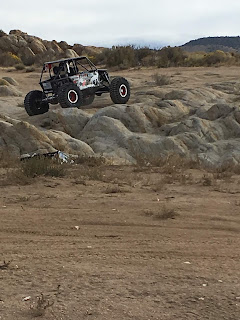Bureau of Land Management, U.S. Forest Service
and National Park Service guidance, indicates that opportunities to continue
dispersed recreation may remain during the current reality we are all facing as
a result of COVID-19. It is possible to abide by social distancing and other
recommended guidelines while getting outdoors and engaging in all sorts of outdoor
recreation – including OHV recreation. But, ultimately, it is up to the
individual to decide if getting outdoors is the right thing to do.
Nevada Outdoor School (NOS) always believes in
safe and responsible recreation – it is the at the core of NOS’s ethics;
however, safety is even more important than ever if you choose to ride your off
highway vehicle (OHV) in the near future. Many hospitals are at or near
capacity. This may not only make it difficult for you to get the care you need
should you get injured, you may also turn the attention of hospital staff away
from focusing on addressing the needs of other patients.
Please carefully consider the potential
implications should you hit the trails. Make decisions that make sense for you
and your family and that abide by recommendations from the Centers for Disease
Control and other federal, state, and local agencies and governments.
Some general guidelines, should you choose to
engage in OHV recreation during this situation:
·
Contact the riding area
in advance – they may be closed.
·
Visit cdc.gov for
information on the latest recommendations and guidelines – follow them!
o Wash your hands often with soap and water for at
least 20 seconds especially after you have been in a public place, or after
blowing your nose, coughing, or sneezing.
o If soap and water are not readily available, use
a hand sanitizer that contains at least 60% alcohol. Cover all surfaces of your
hands and rub them together until they feel dry.
o Avoid touching your eyes, nose, and mouth with
unwashed hands.
o Avoid close contact, especially with people who
are ill.
o Put distance between yourself and other people
if COVID-19 is spreading in your community. This is especially important for
people who are at higher risk of getting very sick.
·
As ALWAYS – wear all
appropriate safety gear. For ATVs, ROVs, and dirt bikes this includes: a
DOT-compliant helmet, goggles, long sleeves, long pants, over-the-ankle boots,
and gloves.
·
Ride or drive on trails
that do not challenge your skill level – now is not the time for technical
obstacles.
·
Ride or drive at
significantly reduced speeds. Enjoy the scenery. Stop for lunch and take in the
fresh air and sounds that come with being outdoors.
·
Abide by social
distancing recommendations. Ride in pairs or small groups. Keep in mind that
others you come across on the trail may stay farther away than normal and may
not want to engage in conversation.
·
Experience nearby
trails. This is not the time to load up the truck and try a riding area that
you’ve always wanted to try but is 1,000 miles away. Comply with
recommendations to stay near to home.
·
If you are at all
uncomfortable for any reason about getting out on the trail – DON’T GO!
·
If you feel sick – DON’T
GO!
Outdoor recreation is an important part of life
– studies show it makes us happier and healthier. However, we are experiencing
a unique reality right now. NOS encourages you to make good decisions, comply
with mandates and guidelines from relevant authorities, and to stay safe.


No comments:
Post a Comment